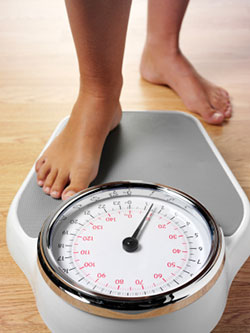
Maintaining a healthy weight is vital in one’s overall health. The best way to manage one’s weight is through a nutritional diet and exercise. A common practice of weight management is paying attention to the amount of calories consumed and the amount of calories burned. Calories are an important source of fuel for the body. Your body needs calories for everything it does including breathing and sleeping. Calories are how much energy your body gets from the food and drinks it consumes. There are nutrients that contain calories like fats, carbohydrates and proteins. There are also 'empty' calories that are found in sugary foods that do not make a person feel full. The number of calories a person needs depends on age, weight, activity level and height. In general men need 2000 to 2400 calories a day, whereas women need 1200 to 1500 calories a day. Many people when dieting tend to cut calories, but you should be aware that if you consume less than 1200 calories a day it can be detrimental to your health. It can cause one’s body to go into starvation mode, making it hold onto calories rather than burning them. Teenagers need to consume the most calories because of growth spurts and hormonal changes. Teenage boys can need up to 3000 calories a day, whereas teenage girls need about 2200 calories a day. Not all calories are the same though; one should look for a balance of calories from all food groups in order to have a well-rounded diet.
Exercise is also an important part of weight management. Daily activities can help to build muscle and burn fat, making one feel more energetic and healthy. In order to lose weight most diets cut out some calories and increase exercise. The best advice about weight loss is to be realistic and not give up. It can be difficult to get going and keep going, but remember there is a great payoff in the end. You will look and feel better, while creating a healthier and happier you. There are many different weight loss and management plans out there, so it is best to talk to your local health care provider about which plan would be best for you.
Another important aspect of weight management is to stay hydrated. Many people confuse thirst with hunger and reach for something to eat, when they should be having something to drink. Drinking at least eight glasses of water a day will help to feel full longer and will aid in digestion.